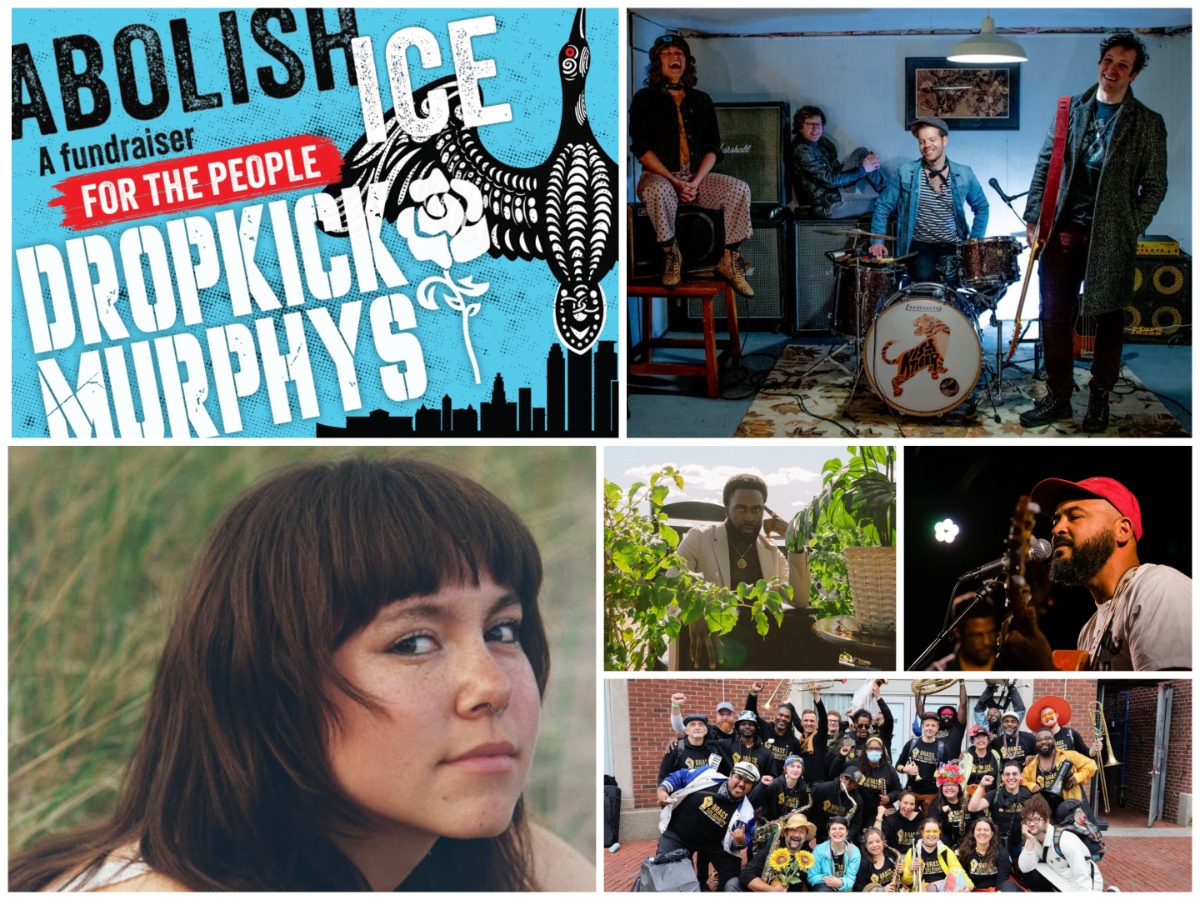It’s not like I want to get Molly Brandt keyed up about the state of the world.
Still, times being what they are, our conversation often drifts to some dark places.
“Being angry sucks,” the 29-year-old-for-a-few-days-still country singer says. “But with social media, it's just so addicting to keep scrolling until you find somebody who agrees with you or just keep getting more and more angry about ‘they said that and that…’ It's exhausting. But in the moment, your brain is just flaring up, you know?”
This is all my fault for arriving at the pavilion in front of the Como Conservatory a little late, giving Brandt time to doomscroll after a lap around the lake on her bike. What bothers her? Oh, the usual things. Economic inequality. Incipient fascism. Dying planet. You know, the sort of persistent ills that not even this gorgeous scenic overlook on a fine September day can reliably dim.
Fortunately Brandt has music as an outlet, and on her new album, the somewhat grandly named American Saga, she channels her political frustrations and hopes into a resonant batch of songs rather than rage-tweeting like some of us. She bemoans capital’s erosion of a town’s vitality on “Dollar Stores & Strip Malls” (which rhymes “we’re living in a car society” with “the bottle is cheaper than therapy” and makes it work) and crafts a historical fantasy about a 19th century class traitor on “Daughter of the Oil Tycoon.” She even takes heart from hearing “voices singing anthems of survival” on “Ashes (Follow That Sound).”
“When I started writing the songs, I wasn't saying, ‘Oh, this is going to be a political album,” Brandt says, crediting her partner and collaborator Eric Julio Carranza with recognizing a thread running through her new material. “He said, ‘I feel like these all have a theme, like, I feel like you could call this album American Saga.’ And I was like, 'Let's run with that.' These characters, these places that I'm talking about, they all feel very distinctly American.”
It’s impressive work from a musician who remade herself as a country singer-songwriter just a few years ago. Before she left Iowa for Minnesota in 2019, Brandt was working in the nonprofit world and gigging with a jazz combo, performing standards. She had never written a song.
Not that she hadn’t considered it. But, she says, two things were missing from her life: “I didn't really feel like I had time; I didn't feel like I had the self- confidence to do that.”
The pandemic provided her with both. "I had just moved to an apartment in Uptown, and a lot of us were just chilling on the stoop that summer, because we were either unemployed or working from home,” she recalls. “We would just kind of cook dinner with each other. You know, we couldn't really hang out with too many people. So that was kind of our Covid bubble.”
Now with plenty of unexpected free time and the support of her new friends, Brandt taught herself guitar and began experimenting on GarageBand. The songs that came out of this time period, which Brandt honed during live gigs at Palmer’s and house shows, eventually made up her 2023 debut album, Surrender to the Night, which was celebrated as among the year's best by some very important local music tastemakers.
Brandt has developed her songwriting even further with American Saga, in part through working with Caranza, whom she first met when he was playing a show at Mortimers in December 2021. “I walked in and I was like, 'That man is hot. I want him,'” she says.
She DM’d him on Instagram that night, and they talked for months before finally meeting up in April. "It was definitely a date. It was at his apartment. And it went well.”
Soon, their romantic partnership became an artistic one. “She just started sending me acoustic demos she was recording on her phone, asking my thoughts,” Carranza recalls. “I couldn't believe these were the first songs she was writing.”
Brandt remembers being a little more hesitant. “The first time we tried to write together, like, simultaneously, I was really shy and vulnerable, and I was like, 'I can't do this on the spot in front of you,'” she says.
But they’ve devised a process that works for them. Says Brandt, ”I write in a separate space, and then I come to him with my ideas, and then we workshop that together. Or I give him an idea of what I want a song to be about, or what the title is going to be, and then he goes and makes some sort of instrumental track. And I use that as my basis for making a melody on top of it, and I write all the lyrics.”
That happens a lot in the corporate pop biz, where a producer works up a track and another writer composes a melody and lyrics to go along with it, a process called “toplining.” Brandt and Carranza aren’t always quite so schematic though, varying their work. They took recordings made in their basement out to a Wisconsin studio, Honeytone, to finish the job.
“Molly is definitely an artist who puts the song above everything else, so she is open to hearing ideas for arrangement or production,” says Patrick Boland, who produced American Saga out at Honeytone. “The album felt like a safe space to bounce around ideas.”
Some of those musical ideas came from Carranza, who plays in a variety of non-Americana settings (he gigs regularly with the jazzily experimental R&B singer Lady Midnight) and nudged Brandt's sound in different directions. His guitar on “Mr. Texas” is pure Lindsey Buckingham, and discofying “Sunup” was his idea.
“Sometimes he's like, 'What if the guitar was really dirty?'” Brandt says. “'What if we brought in this really bassy thing? What if we brought in the synth sound or this weird little ear candy?' And I love the idea of exploring different genres and vibes."
Pulling it all together is Brandt’s voice, which in a recent blurb, I called “capacious,” a fancy word for "big" that seems appropriate here. Where some big voices feel forbidding, Brandt’s is welcoming, inviting you because it’s got room to spare.
But though there's plenty of heartbreak and regret on American Saga, it's the work of a happy woman. “When I have time to be myself, to be a human, to do the things I want to do, it's really conducive to creativity,” Brandt says. “You know, you don't have to be miserable to be creative. In fact, when I'm miserable, I’m not creative. I'm focusing on being miserable.”
She credits the pandemic's mental and emotional reset with reorienting her life. “I was working three jobs during college. I was working three jobs out of college. so I was finally forced to slow down,” she says, grateful for the state’s generous unemployment benefits at the time. “I thought, 'Oh, I'm being paid to live like a human. For the first time, I get to go on walks.'"
(Just a little tangent: Those same benefits allowed Racket's founders to get this site off the ground. Paying people not to work allows them to be creative!)
Brandt now supports herself by giving piano lessons and gigging, and to relax in her spare time she consumes books and podcasts, often of a historical bent.
“I love learning about ancient times because it really gives me some perspective of where we are in the greater scheme of things,” Brandt says. “Can you imagine we could be in London in 1820 working in a factory? Dying at age 20 from cholera? Yeah, that gives me some comfort. Weirdly.”
Molly Brandt
With: Jest, Roe Family Singers
Where: Icehouse
When: Fri., Oct. 4; dance lessons at 7 p.m., music at 8 p.m.
Tickets: $20/$25; more info here.






